Recovery of survivors of critical illness:
Incorporating lifestyle approach to improve overall well being
Incorporating lifestyle approach to improve overall well being
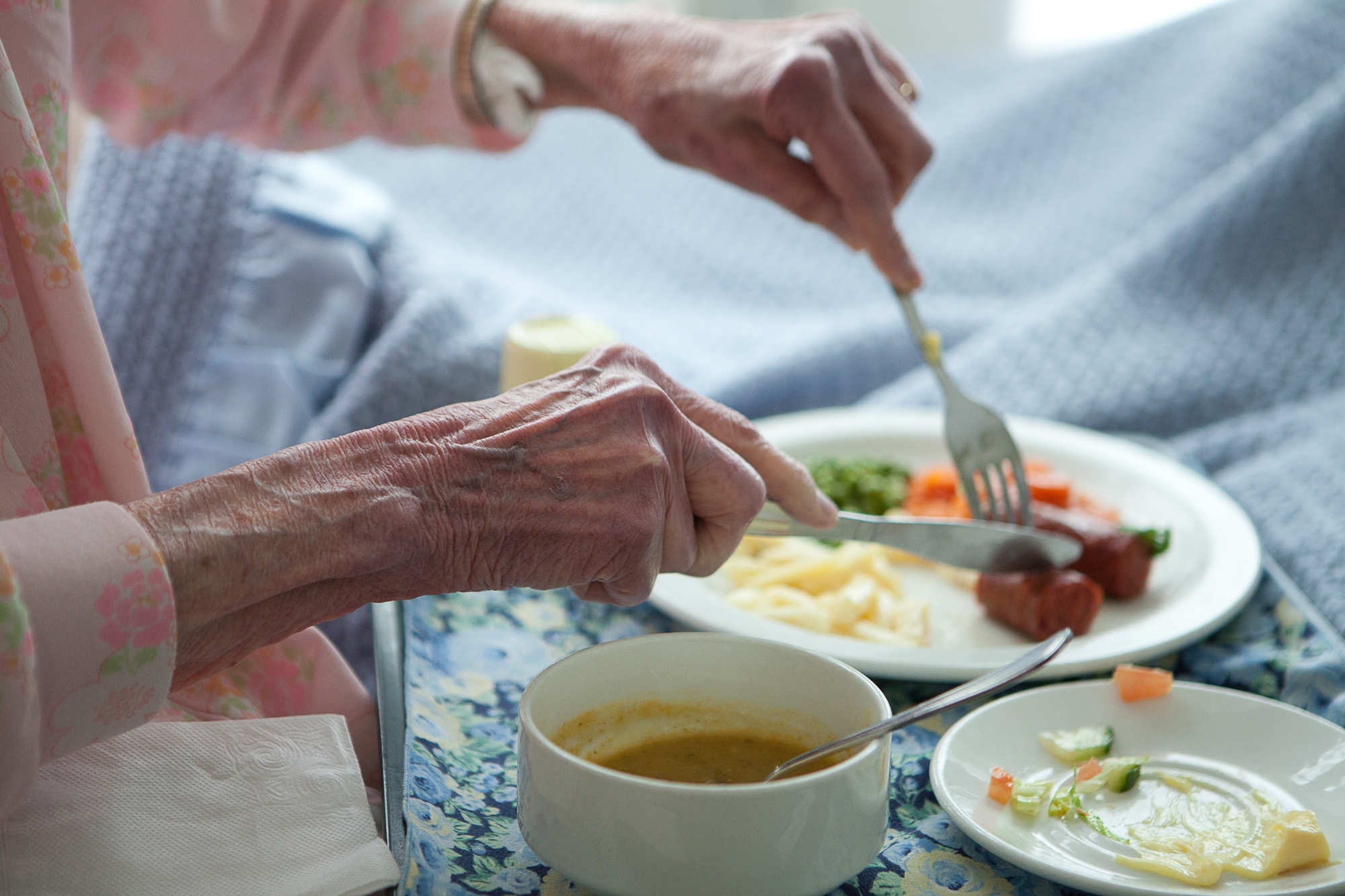
Studies have shown that undernutrition persists long-term among ICU survivors, with protein and energy targets unmet at 1 year post-ICU (Beumeler, 2024). While some patients experienced gradual improvements in nutritional status over the subsequent 12 months, the prevalence of malnutrition remained high among older adults, where 48% remained malnourished at 12 months post-hospital discharge (Tripathy, 2014).
As the number of patients surviving critical illness increased, there has been an increase in reported physical and functional disability as well as impairment of quality of life following discharge from the critical care unit (Herridge, 2011). Skeletal muscle weakness, termed intensive care unit-acquired weakness (ICU-AW), contributes significantly to the physical and functional disability observed in these patients during their stay in the critical care unit (Bear, 2017).
Multiple studies had investigated body composition in ICU survivors using different methodologies. Bioelectrical impedance analysis (BIA) was used in four studies (Rousseau et al, 2022, Ait Hssain et al, 2023, Lakenman et al, 2023, Rives Lange 2022). Changes in body composition over time varied. Two studies using dual-energy X-ray absorptiometry (DEXA) observed an increase in whole body total mass and fat mass between six and twelve months, whilst lean mass was maintained or lost.
It is important for critical care survivors to be followed up with an appropriate multidisciplinary approach which includes nutrition and physical activity rehabilitation (Major et al, 2021). Up until today, no such study has been conducted in the UK either newly discharged or discharged after 6 months. The challenges such as timing to provide nutrition support and exercise recommendations required remains further investigation as the information about these elements remain scarce.
Email: hmajid@aecc.ac.uk
The aim of this PhD is to investigate barriers and challenges in optimising nutrition intake and appropriate exercise for post ICU discharge patients and how this will impact their body nutritional status and body composition. In addition, we will also develop an interventional study of nutritional and exercise rehabilitation to help survivors optimise physical function.
In the first phase, the PhD candidate will explore the literature about this topic and a scoping review will be written. Following this, a qualitative study will explore the barriers and challenges in optimising dietary and physical activity among these critical care survivors. Then an interventional study (quasi-experimental design) will be conducted to explore the appropriate intervention (nutrition and physical activity) that can be developed to assist these survivors to optimise nutritional intake and physical activity level and health related quality of life. This is hoped to improve their (functional capacity (such as hand grip strength) and maintain their muscle mass) compared to current practice.
To provide evidence for multi-disciplinary nutritional rehabilitation intervention for the critical care survivors.
Limited number of studies have explored the possible strategies in ensuring adequate provision of nutrition and physical activity intervention over a period of time which can be influenced by physiological changes. Nevertheless, barriers and challenges in obtaining optimum nutrition and physical activity among ICU survivors remain unclear. Important outcomes include nutritional intake, muscle mass and quality of life. Patient selection of those most likely to benefit from nutritional and physical activity interventions in the post-ICU phase merits specific attention.
The external collaborator/ advisor will provide his expertise in sports exercise medicine as he has done research pertaining clinical rehabilitation and survival. In addition, by doing this study here in the UK, it will provide an opportunity for such an approach for the post – ICU survivor nutrition and physical activity intervention can be adapted either locally or internationally. This will create more collaborations.

We have funding available via fee-waiver support for up to three UK home students. Applicants are asked to make it clear as part of their application that they are applying for this opportunity. Decisions will be made based on the excellence of the candidate.
Self-funded students are also welcome to apply for this project. Self-funded students can be UK home students or international students.

Available to both UK and International students.

Potential Advisor

Herridge, M. S., Tansey, C. M., Matté, A., Tomlinson, G., Diaz-Granados, N., Cooper, A., Guest, C. B., Mazer, C. D., Mehta, S., Stewart, T. E., Kudlow, P., Cook, D., Slutsky, A. S., Cheung, A. M., & Canadian Critical Care Trials Group (2011). Functional disability 5 years after acute respiratory distress syndrome. The New England journal of medicine, 364(14), 1293–1304. https://doi.org/10.1056/NEJMoa1011802
Bear, D. E., Wandrag, L., Merriweather, J. L., Connolly, B., Hart, N., Grocott, M. P. W., & Enhanced Recovery After Critical Illness Programme Group (ERACIP) investigators (2017). The role of nutritional support in the physical and functional recovery of critically ill patients: a narrative review. Critical care (London, England), 21(1), 226. https://doi.org/10.1186/s13054-017-1810-2
Beumeler LF, Visser E, Buter H, Navis GJ, Boerma EC, van Zutphen T. Protein and energy intake in intensive care unit survivors during the first year of recovery: A descriptive cohort study. Journal of Parenteral and Enteral Nutrition. 2024;48(1):93-9.
Tripathy S, Mishra JC, Dash SC. Critically ill elderly patients in a developing world–mortality and functional outcome at 1 year: a prospective single-center study. Journal of Critical Care. 2014;29(3):474.e7-13.
Rousseau A-F, Lucania S, Fadeur M, Verbrugge A-M, Cavalier E, Colson C, et al. Adequacy of nutritional intakes during the year after critical illness: an observational study in a post-ICU follow-up clinic. Nutrients. 2022;14(18):3797
Ait Hssain A, Farigon N, Merdji H, Guelon D, Bohe J, Cayot S, et al. Body composition and muscle strength at the end of ICU stay are associated with one-year mortality, a prospective multicenter observational study. Intensive Care Medicine Experimental Conference: European Society of Intensive Care Medicine Annual Congress, ESICM. 2023;11(Supplement 1).
Lakenman PL, Joosten KF, Bommel JV, Bek LM, Berg-Emons R, Olieman JF. Nutritional status of patients with COVID-19 1-y post-ICU stay: A prospective observational study. Nutrition. 2023;111:112025
Rives-Lange C, Zimmer A, Merazka A, Carette C, Martins-Bexinga A, Hauw-Berlemont C, et al. Evolution of the nutritional status of COVID-19 critically-ill patients: A prospective observational study from ICU admission to three months after ICU discharge. Clinical Nutrition. 2022;41(12):3026-31.
Major, M. E., Dettling-Ihnenfeldt, D., Ramaekers, S. P. J., Engelbert, R. H. H., & van der Schaaf, M. (2021). Feasibility of a home-based interdisciplinary rehabilitation program for patients with Post-Intensive Care Syndrome: the REACH study. Critical care (London, England), 25(1), 279. https://doi.org/10.1186/s13054-021-03709-z
Discover and read all the latest news, press releases and happenings here at Health Sciences University.

Health Sciences University (HSU) recently hosted a thought-provoking panel discussion in celebration of International Day of Women and Girls in Science.

Dr Mahitha Naidu has recently graduated from the MSc Podiatry (Pre registration) course at Health Sciences University.
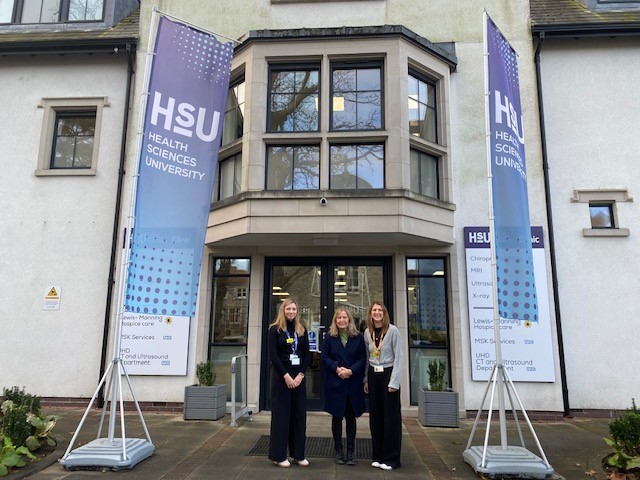
Health Sciences University, in collaboration with Dorset HealthCare, has launched a new Brain Health Clinic on its Bournemouth campus.
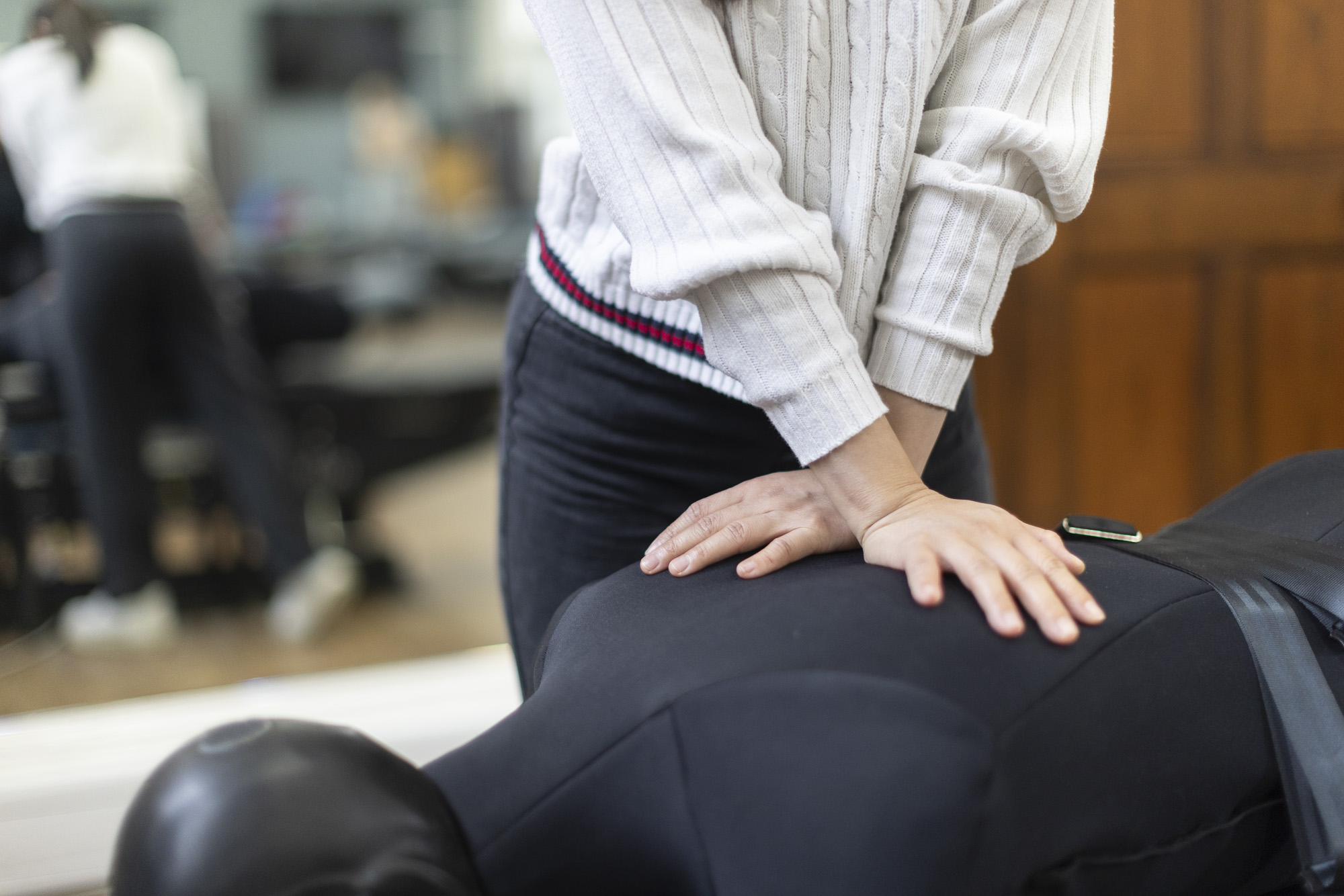
Carla tells us more about her experience of the course so far and what she enjoys about being part of the HSU community.
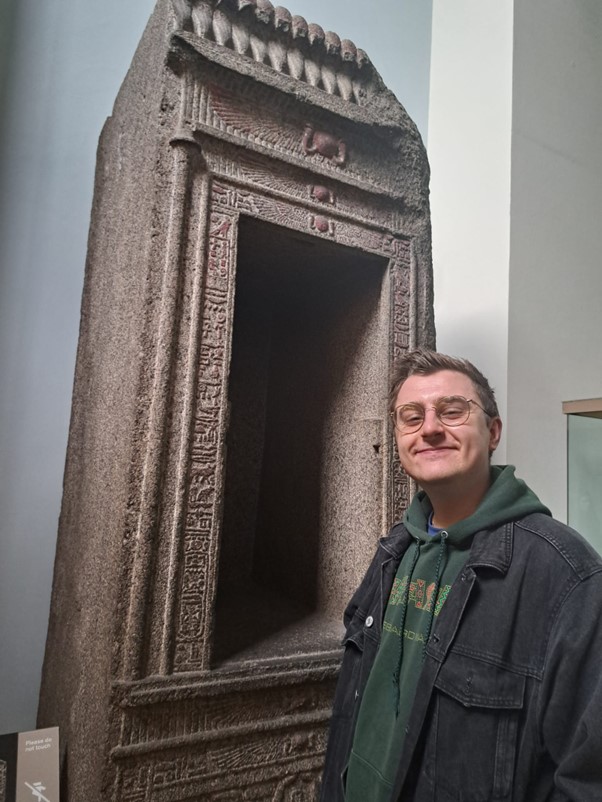
Dan Egelstaff is a First Year student on the MSc Occupational Therapy (pre-registration) course. The degree at Health Sciences University appealed to Dan when he was working as a Learning Disabilities Support Worker during the Covid-19 pandemic.
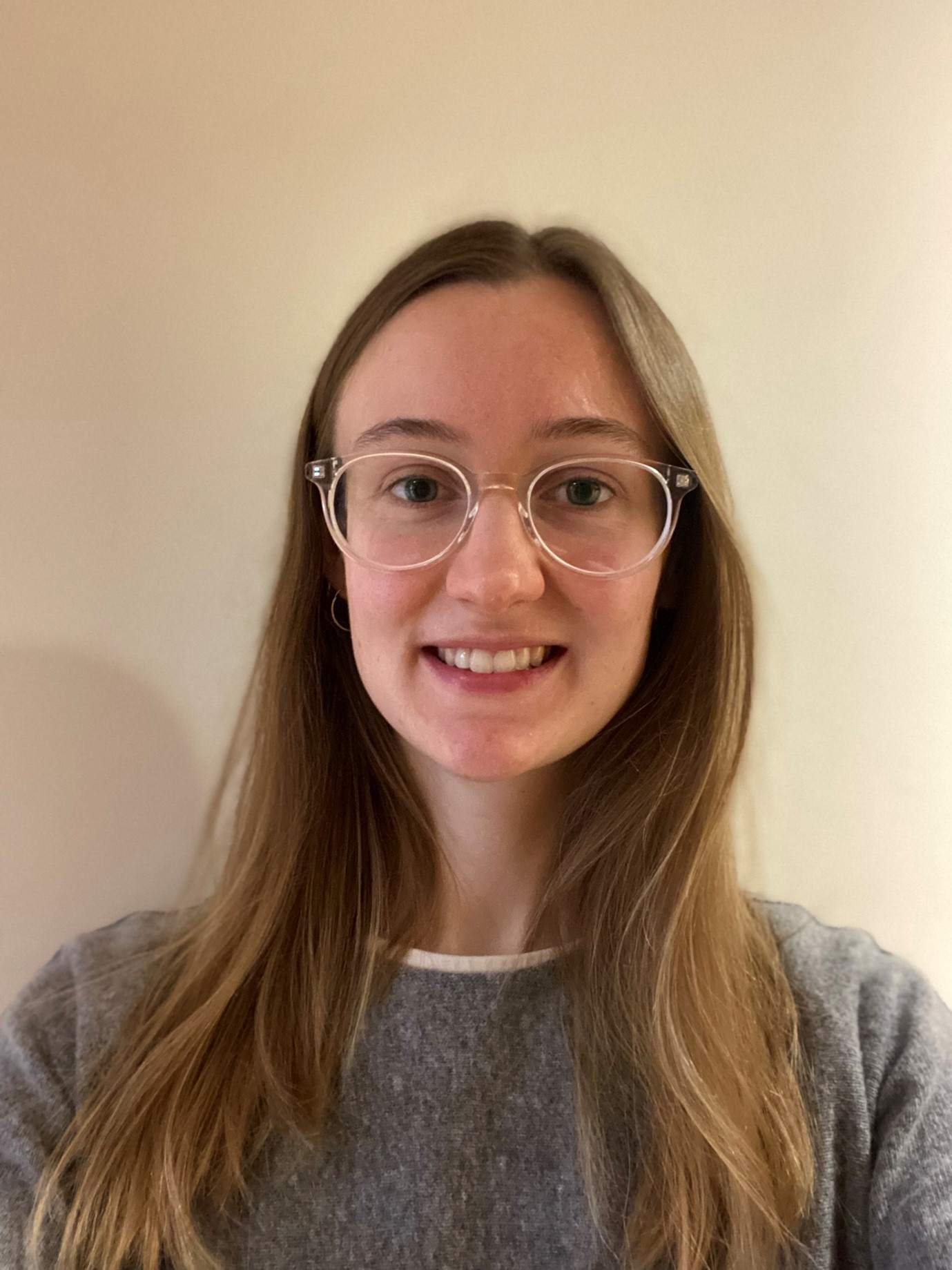
Natalia Purkiss is in her first year of the MSc Occupational Therapy (pre-registration) course at Health Sciences University.
Health Sciences University
Bournemouth Campus
Parkwood Road
Bournemouth
BH5 2DF
Health Sciences University
London Campus
275 Borough High Street,
London
SE1 1JE